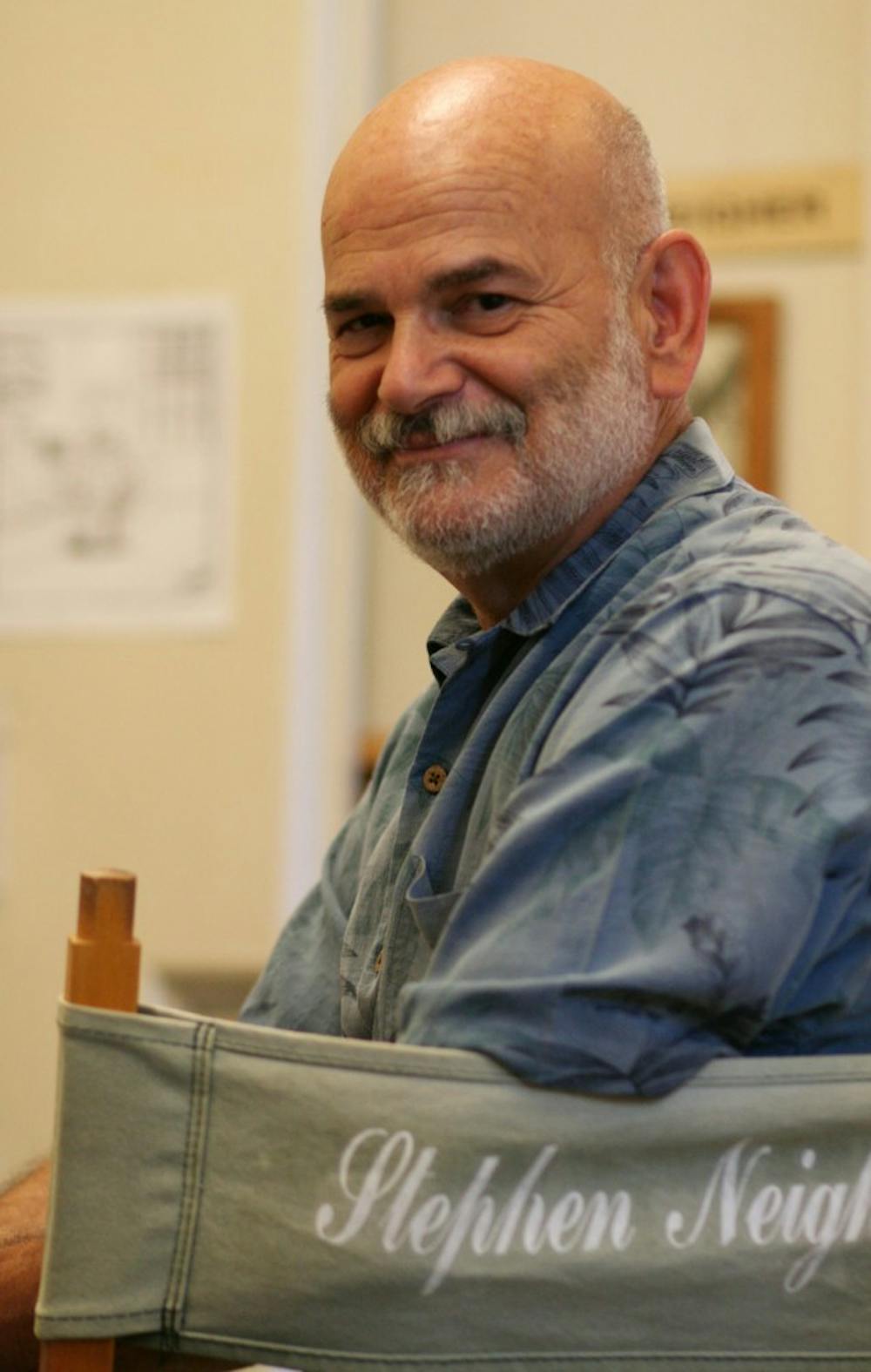“A lot of it is just serendipity,” Neigher said. “I had tremendous good fortune.”
He wrote for classic shows like “The Jeffersons,” “The Facts of Life,” and “Sister, Sister,” keeping steady work for 25 years.
But after more than two decades in the TV and film industry, Neigher and his wife moved from Los Angeles to Chapel Hill in 2001. They were looking for a good college town where they could raise a family, Neigher said.
Neigher continued to write from Chapel Hill until 2006, when UNC communications professor David Sontag learned Neigher was living in North Carolina.
“I knew him as a highly respected writer and creator in television,” Sontag said.
Sontag quickly recruited Neigher into the University’s new media production program.
“He was interested in teaching, and we were able to bring him aboard,” Sontag said.
Although he no longer writes scripts, Neigher is staying busy.
He teaches various screenwriting classes, sharing his firsthand knowledge of film and TV writing with his students.
“They are a fount of talent,” Neigher said. “It’s a pleasure to combine my real-life experience with the academic side of learning to write scripts.”
Neigher’s TV and film students sat at a round table and took turns presenting their individually written scenes.
“If it’s not making us laugh, it’s not worth it,” Neigher told them.
To get the day's news and headlines in your inbox each morning, sign up for our email newsletters.
Outside of teaching, Neigher created a non-profit program, Matinee Scholars, Inc., which gives middle school students the chance to write, produce and act in their own sitcom.
The program was first implemented in 2009 by Durham Public Schools, and Neigher hopes to introduce it to other schools in the Triangle area.
Matinee Scholars was created with the help of several UNC student volunteers, the School of Law and the School of Education, Neigher said.
Professor Joseph Megel of the communication studies department recently became involved with the charity.
“He’s still writing, he teaches and now he has Matinee Scholars going,” Megel said of Neigher. “He’s committed both vertically and horizontally.”
In the classroom, Neigher still considers personal anecdotes from his career to be his most valuable asset.
“You could write a line and know that, three weeks later, 30 million people were laughing at it,” he said.
Contact the Arts Editor at artsdesk@unc.edu.




